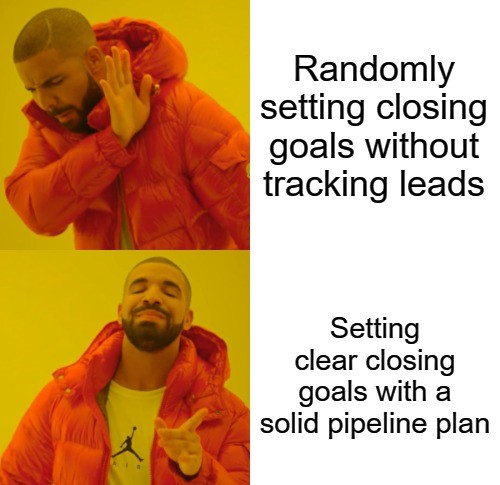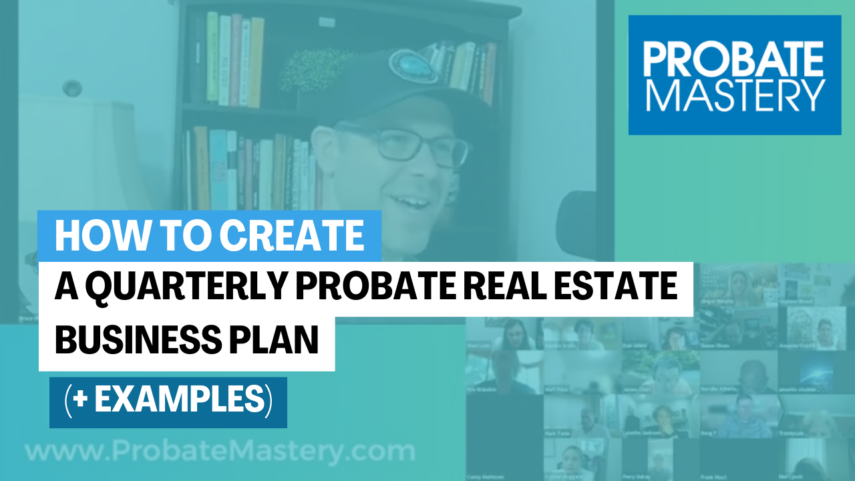If you’re aiming for success in the probate real estate market, understanding how to create a comprehensive business plan is crucial. This blog will guide you through crafting a quarterly probate real estate business plan that drives results.
While developing a solid strategy might initially seem overwhelming, it’s more straightforward than you might think. In this guide, you’ll discover essential steps to create an effective plan. We’ll walk you through setting clear, achievable goals and building a robust foundation for long-term success. By the end, you’ll have a clear roadmap to navigate the complexities of the probate market and propel your business forward with confidence.
Here’s a rundown:
📍Setting Closing and Pipeline Goals for Your Probate Real Estate Business
📍Essential Assets and Systems for Your Probate Real Estate Business
📍Tracking KPIs and Utilizing Tools for Your Probate Real Estate Plan
📍Effective Accountability Strategies for Probate Real Estate
Setting Closing and Pipeline Goals for Your Probate Real Estate Business

Let’s get straight to the heart of your business: closing deals. The probate real estate market has its unique challenges, so setting realistic and achievable goals is essential for your success.
Closing Goal: 1 Closing Contract in the First 3 Months
For the first quarter, set a clear target of one closing contract in probate real estate. This quarterly real estate business plan focuses on achievable goals and realistic targets.
Although this goal might appear modest at first, considering the typical 4-6 month timeframe for the probate process, it is indeed a solid and attainable objective.
Find 15 Out of 30 Leads That Will Sell
Imagine managing 100 leads each month. Understand that not all of them will convert, and that’s perfectly normal. Your goal is to identify 15 out of 30-40 leads that show genuine potential to sell. To spot these promising leads, closely monitor their responses. If they mention phrases like, “It’s too early” or “We haven’t decided yet,” these are indications they’re not quite ready—at least not yet. However, they could be soon.
From those 15 potential leads, focus on the top 20% that are most likely to move quickly. Specifically, aim to identify 3 leads that strongly indicate they’re ready to proceed. These are your quick wins—deals that will not only boost your momentum but also build your confidence.
Convert 1 Out of 3 for a Fast Sale
Once you’ve pinpointed your top 3 hot leads, the next step is converting them into closed deals. Successfully closing 1 out of these 3 leads within the first three months puts you on the right track. This is where effective follow-up becomes crucial. To stay top of mind, consistently provide value and gently encourage them towards signing that contract. Keep in mind, in the probate market, timing is everything.
Pipeline Goals :
With your goals set, it’s time to shift your focus to your pipeline. In fact, this pipeline is the lifeblood of your probate real estate business. Consequently, establishing and reaching pipeline goals is essential for maintaining a steady flow of potential deals.
Add 12 Warm Prospects to the Pipeline
Maintain a healthy pipeline by adding 12 warm prospects each week. This step is crucial for a successful probate business strategy template. These leads have shown signs that they might be ready to sell soon. While they may not be prepared to close just yet, with effective nurturing, they could become valuable opportunities.
Setting this goal ensures your pipeline remains robust and maintains a steady stream of potential deals.
Focus on Low-Hanging Fruit

Not all leads are created equal—some are closer to making a decision than others. Direct your efforts towards these low-hanging fruit—the leads most likely to convert. By concentrating your time and resources on those who are ready to move, you can accelerate your chances of closing deals.
Identify 3 Out of 100 Leads That Will Sell Fast
From a list of 100 leads, aim to pinpoint the top 3% who are poised to sell quickly. In doing so, you identify your quick wins, which are vital for building momentum in your business. Consequently, invest your time, energy, and resources into these high-potential leads. By focusing on these leads, you can secure swift deals and, in turn, enhance your confidence.
Attend 6 B2B Networking Events
Networking plays a pivotal role in the probate real estate business. Therefore, aim to attend six business-to-business (B2B) networking events each quarter. Indeed, these gatherings are prime opportunities to connect with other professionals in your niche who can offer valuable referrals. Moreover, by networking consistently, you’ll broaden your influence and, as a result, uncover new opportunities that can propel your business forward.
Create 26 Social Posts (Probate/Estate Relevant)
Social media is essential for maintaining visibility with your audience. Aim to create 26 engaging posts related to probate and estate matters over the quarter. This regular posting schedule will help establish your authority in the field, enhance audience engagement, and keep your business top-of-mind.
Produce 10 Content Pieces‘
Building your reputation as a probate real estate expert starts with valuable content. Plan to produce 10 pieces of high-quality content this quarter. This can include blog posts, videos, or guides offering insights into the probate process. Quality content will attract leads, nurture relationships, and boost conversions.
Make 12 Attorney Prospecting Phone Calls
Attorneys specializing in probate are crucial for referrals. Therefore, schedule 12 prospecting phone calls with attorneys this quarter. During these calls, introduce yourself, outline your services, and explore potential collaborations. As a result, these conversations can expand your referral network and open up new opportunities.
Conduct 6 Attorney Office Visits
Face-to-face interactions are powerful for relationship building. Consequently, plan to visit six attorney offices this quarter. When you approach these meetings, do so with respect and professionalism. Specifically, introduce yourself as a Certified Probate Expert and express your interest in forming trustworthy partnerships. By doing so, these visits can effectively strengthen relationships and, in turn, lead to valuable collaborations.
Get Referrals and Track Your Progress!
Do you know you could build your referral network by identifying attorneys who could benefit from your services and reach out to them? Foster these relationships and watch your business grow. Remember, taking initiative is key!
Earn Attorney Referrals Now (EARN) is our high-impact course that will guide you through the secrets of attorney relationship creation. In this course, you’ll discover how to close more probate real estate deals from referrals you receive from attorneys. Furthermore, you’ll gain insights into leveraging these new attorney relationships to create co-branded video content for your real estate business. To get started, take advantage of the course below—or consider bundling it with Probate Mastery for a great price!
Essential Assets and Systems for Your Probate Real Estate Business
Now that you’ve set your closing and pipeline goals, let’s talk about ensuring you have the right real estate business planning guide in place. Your assets are the tools and resources that will help you execute your strategy, while your systems are the processes that keep everything running smoothly.
Warm and Cold Outreach
Your outreach efforts are the front lines of your business. You’ll need a blend of warm and cold outreach to keep your pipeline full. Warm outreach involves following up with leads who have already shown some interest, while cold outreach targets new leads who may not be familiar with your services yet. Both are crucial to your success. Check out how David Pannell masters his unique marketing steps and take note that probate leads make up the majority of his pipeline.
Digital Platforms
In today’s market, your digital presence is everything. Make sure you’re leveraging digital platforms like social media, email marketing, and your website to reach your audience. These platforms should be optimized to capture leads, nurture relationships, and ultimately, drive sales.
Brand and Marketing Assets
Your brand is more than just a logo; it’s the story you tell and the value you provide. Invest in brand and marketing assets that communicate your expertise and build trust with your audience. This includes everything from your website and social media profiles to business cards and brochures.
Value Magnets
Value magnets are resources you offer for free to attract leads. Specifically, think of things like eBooks, checklists, or webinars. Moreover, these value magnets should be designed to address the pain points of your target audience. By doing so, you position yourself as the go-to expert in probate real estate.
Vendor Relationships
Building strong vendor relationships can give you a competitive edge. Whether it’s title companies, contractors, or estate sale professionals, having a network of reliable vendors can make your life easier and provide added value to your clients.
Content Outline and Products
Your content is your voice in the market. Develop a content outline that includes blogs, videos, and social media posts designed to educate your audience and keep them engaged. Additionally, consider offering products like courses or guides that can provide value to your audience while generating additional revenue for your business.
Real Estate Team Members
You can’t do it all alone. Therefore, surround yourself with a team of real estate professionals who can support your business. For instance, this might include a transaction coordinator, a buyer’s agent, or even a virtual assistant. By having the right team in place, you will free up your time and, consequently, allow yourself to focus more on closing deals.
Tracking KPIs and Utilizing Tools for Your Probate Real Estate Plan
To achieve your goals, it’s crucial to measure progress consistently. Key Performance Indicators (KPIs) are the metrics that will help you stay on track. Let’s explore the tools and resources you need to effectively monitor your KPIs and ensure you’re meeting your targets.
Platforms like Monday.com are invaluable for setting up and tracking your KPIs. These tools are invaluable for setting up and tracking your KPIs. Specifically, Monday.com offers a clear overview of your performance, which enables you to make data-driven adjustments to your strategies. Moreover, by regularly reviewing your KPIs, you’ll maintain a clear focus on your goals and make necessary changes to stay on course. In addition, incorporating KPI monitoring into your routine helps you avoid losing sight of your objectives and drives continued success.
For those who are not familiar with Monday, Here’s a beginner’s guide to help you understand its usage and get started right away: https://everhour.com/blog/how-to-use-monday-for-project-management/
This is just an example tool; there are many project management tools like Asana, Trello, etc., that do pretty much the same thing, and some even use Google Sheets. The key point is the concept of planning.
Effective Accountability Strategies for Probate Real Estate
Finally, no plan is complete without accountability measures. Setting goals is just the beginning; staying accountable is where the real progress happens. Consider implementing a system for regular reviews of your progress, whether it’s on your own or with a mentor or accountability partner.
Having an accountability partner can be a game-changer, as they keep you motivated and ensure you stay on track. In addition, utilize planning software or even a simple planner to break down your goals into manageable tasks and track your progress consistently.
By integrating these tools and strategies, you effectively create a robust framework for achieving your goals. Furthermore, with a clear plan and dedicated accountability, you’ll pave the way for success in the probate real estate market. Consequently, follow this step-by-step guide, stay focused, and keep moving forward. Here’s to your continued success and happy closings!

